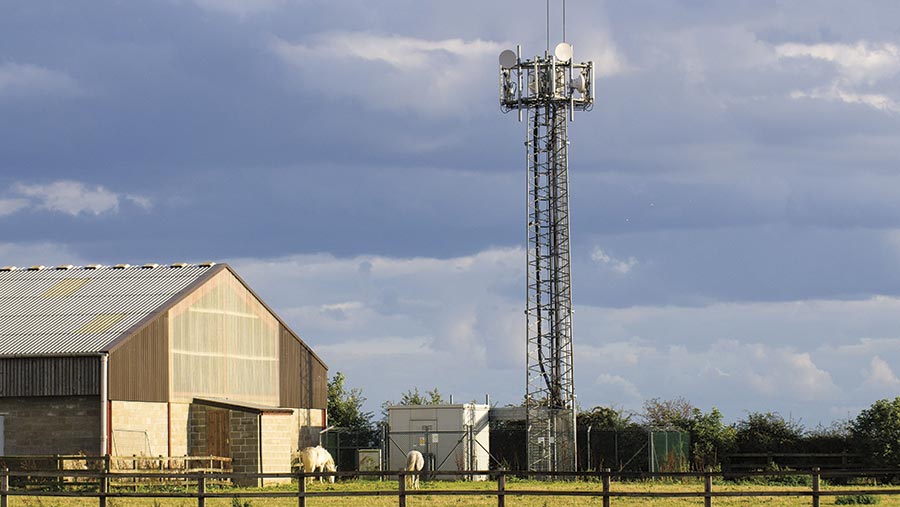New telecoms code turns landowners off mast agreements
 © FLPA/REX/Shutterstock.jpg
© FLPA/REX/Shutterstock.jpg Farmers and landowners across the country are pulling out of telecoms agreements because of concerns over a tightening of communications legislation.
Strutt & Parker’s telecoms expert, Robert Paul, said that the new Electronic Communications Code, introduced in the Digital Economy Act 2017, would come into force in early 2018.
The code will affect all telecoms agreements, including BT wayleaves, and gives operators wider powers.
See also: What farmers need to know about the new telecoms code
Mr Paul said it was vital for landowners to understand how they may be affected
“The new code restricts the ability of a landowner to remove an operator, even if the lease has been breached or the rent has not been paid.
“An operator can only effectively be removed for redevelopment and then only after 18 months’ notice and potentially two separate court actions,” Mr Paul said.
He added: “Site providers, which include farmers and landowners, are now recognising the potential impact that an agreement for electronic communications equipment on their building or land might have on their normal business operations.”
Code concerns
Mr Paul said: “We are seeing many rural landowners who are unwilling to grant rights voluntarily because of concerns about the impact of the new code.”
And Mr Paul suggested that the number of landowners seeking to remove operators under the present code was up at by least 30% as they “woke up to the potential difficulties the new agreement could impose”.
The more onerous legislation was drawn up after telecoms companies complained that the existing code was unwieldy and was blocking government aims to improve coverage.
The operators voluntarily agreed to sign up to a new agreement, which imposed on them obligations to extend coverage in return for a new code improving their position.
Unrealistic demands
Developing phone technology would require a greater density of sites which, albeit with a smaller footprint, are still likely to give rise to the same issues and nuisances for site providers, said Mr Paul.
“Demands from operators for 24/7 access rights are often unrealistic and there are often good business reasons for restricting access.
“Operators’ demands for unfettered rights to fell trees, even for sites in commercial woodlands, are another major issue,” he said.
2020 network ‘unlikely’
Yet the Home Office, which is responsible for acquiring sites in more remote areas, is offering just £4,000 while also seeking wide assignation, sharing and access rights, said Mr Paul.
These issues and a growing reluctance to enter into agreements could threaten ambitions for greater coverage unless a resolution is found, he suggested.
“The terms being offered are proving unattractive to landowners and therefore the delivery of the improved network by September 2020 now looks unlikely.”
